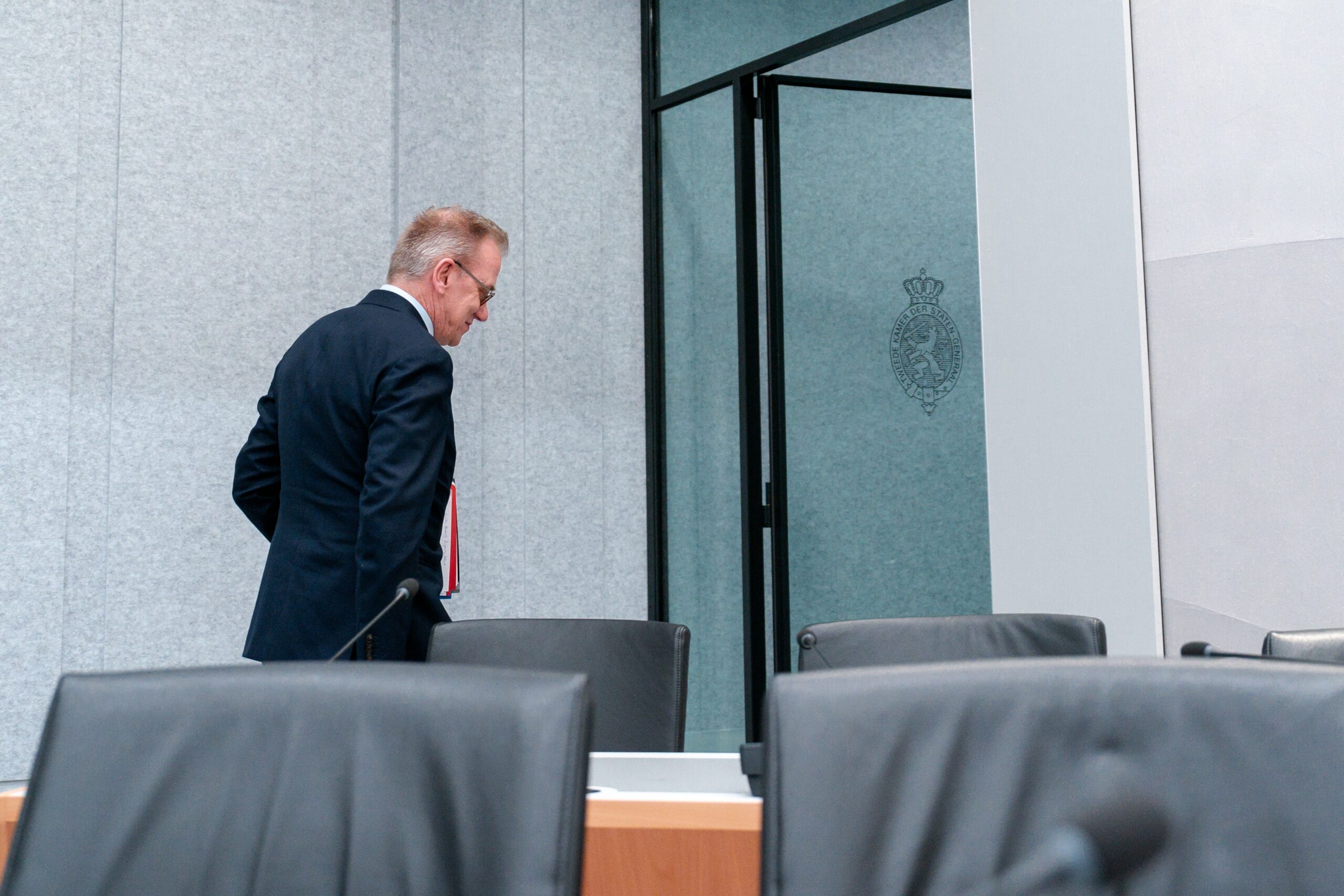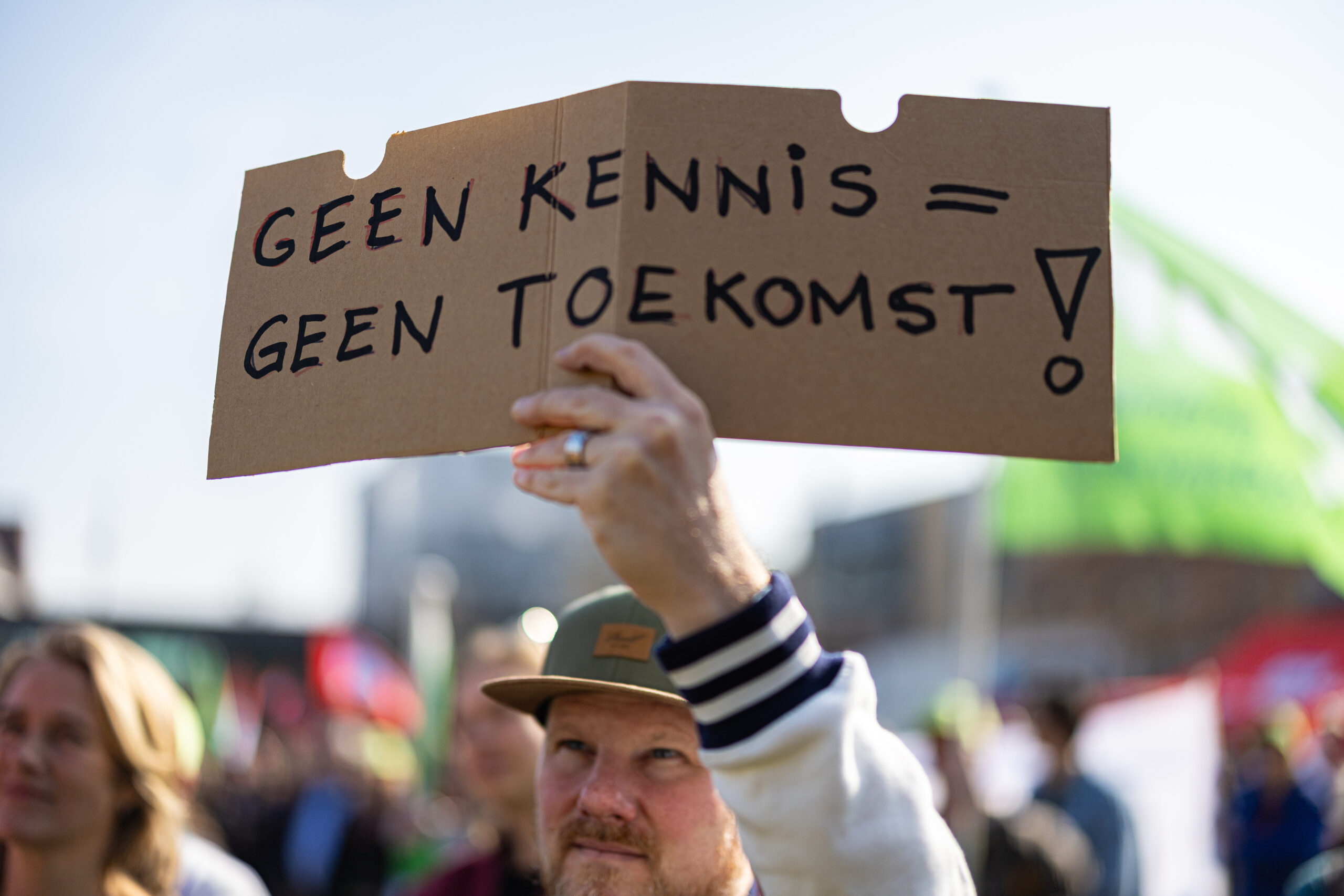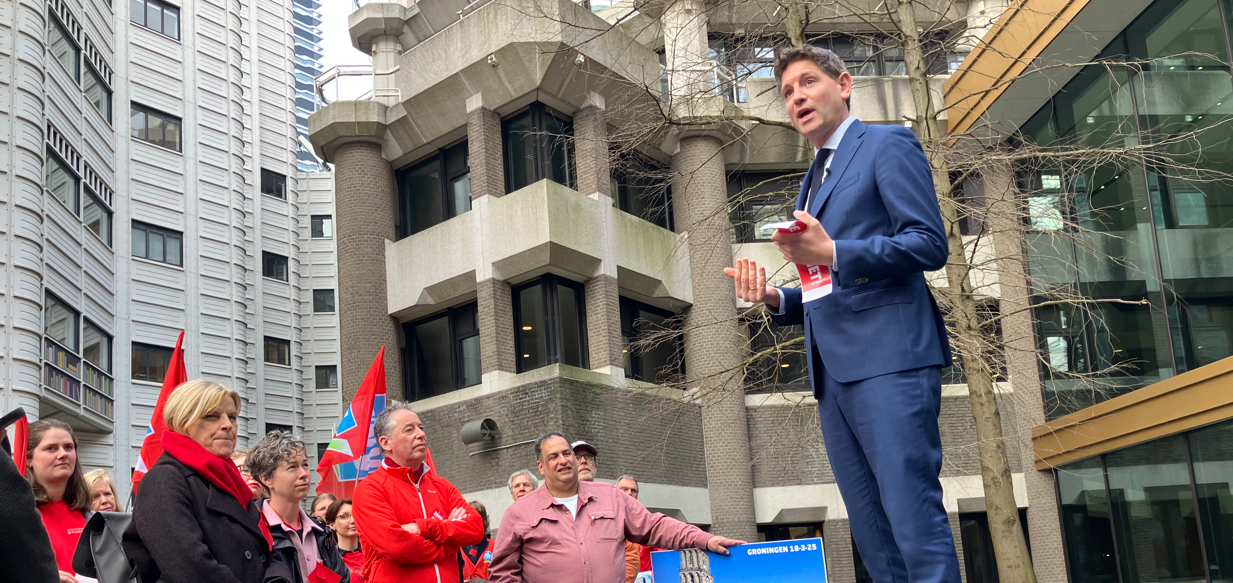Initial reactions show that many questions remain unanswered in Education Minister Eppo Bruins’ “policy letter” on tertiary education and research.
Minister Eppo Bruins outlined his policies for secondary vocational education, tertiary education and research in broad strokes in a letter last Friday. The letter provides his political allies and opponents some idea of the path he intends to take.
Bruins aims to align education with the employment market and society’s needs. He also wants to mitigate competition over students between institutes for tertiary education. Funding for tertiary education must become more stable, and universities and colleges are mandated to align their range of programmes.
UNL
Above all, universities welcome the fact that Bruins aims to relieve their administrative burden. ‘That is sorely needed, because this is currently a heavy burden which only seems to become heavier’, the association of universities UNL states in a written reaction.
But the budget cuts remain. ‘The main issue is that the budget for tertiary education and research is being cut by half a billion euros. Universities are forced to lay off personnel, terminate programmes and cease research into, for example, the treatment of cancer and Parkinson’s disease.’
The universities are in favour of less competition and more collaboration, but a statutory requirement to consult among themselves on the range of programmes? The universities state that such consultations already take place. They launched a collective arrangement for small and unique humanities programmes. ‘It is unclear how a statutory requirement will add to this.’
Students
The National Student Union is concerned that tertiary education may be turned into a “degree factory”, says chair Abdelkader Karbache. ‘The minister focuses solely on the employment market.’
Bruins criticised the upward pressure students feel, the push to pursue a “higher” degree. ‘It would be nice if he would explain what causes this pressure’, Karbache states. He feels that young people don’t focus all that much on the employment market or are easily nudged towards other choices. ‘Thinking that would be naive. The technical universities have been trying to recruit more women into technical studies without success for years.’
Thus, he views the plans for capacity funding -funding less reliant on student numbers- in tertiary education with some distrust. This could lead to fewer students and increased selection. ‘That is very concerning. More time and investigation are required, but as students, we want to approach this very diligently.’
This issue also worries Mylou Miché, chair of the Interstedelijk Studenten Overleg. She, too, expects capacity funding to lead to selection. ‘That will increase performance pressure’, she predicts. ‘We don’t think this is a good option. Students should be able to develop themselves as they wish in a free environment.’
There are other aspects of the letter, which she deems insufficiently concrete, that cause her concern. The minister wants stability in the system, but what does that mean? ‘There are 800 thousand students in the system, but it is not about them. What does the minister want in order to achieve equal opportunities and accessibility?’
She understands that the minister is concerned about shortages in health care and education and about dropping student numbers. ‘As students, we also value programmes that offer some form of perspective for the future. But how does the minister intend to achieve this?’
Politics
How the letter will be received by politicians remains to be seen. ‘It is very vague’, says opposition party D66 representative Jan Patternotte. ‘The letter reveals a little of what the minister aims to achieve but fails to state how. It is all smoke and mirrors; he pretends the budget cuts don’t affect people.’
And what about the focus on alignment with the employment market? ‘Everyone is in favour of a proper alignment and a critical reviewing of the range of programmes’, Patternotte states. ‘But currently, student numbers are dropping with such speed that institutes are experiencing issues and programmes are being terminated. And if you ask Bruins what his policy is regarding international students, Bruins doesn’t answer.’
Coalition party VVD is more sympathetic. Member of the House of Representatives Claire Martens-America still has many questions, for example, about the speed and implementation. ‘For now, I am certainly positive’, she states.
The VVD feels that a focus on society and the employment market is logical. ‘Politicians have little say about what education has to offer, but we are held responsible for issues in healthcare, education and engineering’, Martens-America states. ‘There are reasons why politics are far removed from education, and the pitfalls thereof are now becoming visible. It would be wise to take a closer look at this issue.’

 Education minister Eppo Bruins. Photo: Shutterstock.
Education minister Eppo Bruins. Photo: Shutterstock. 

